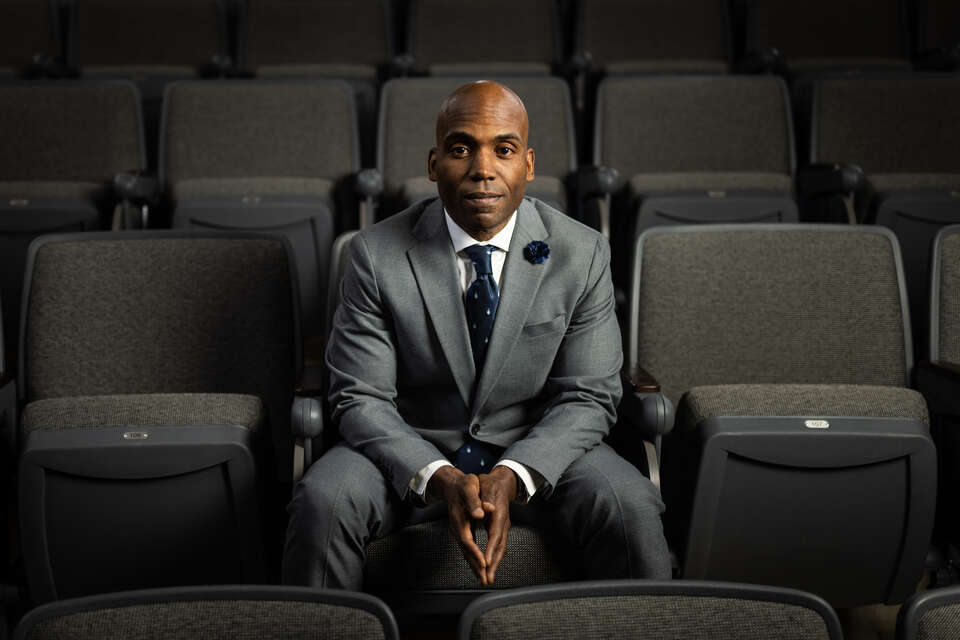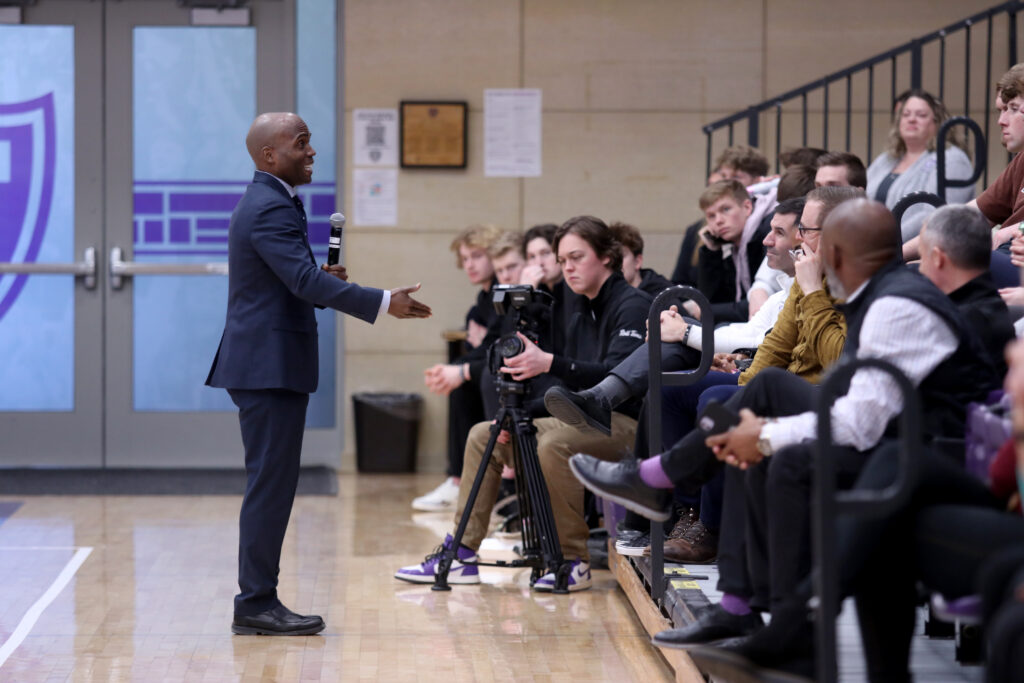When the Racial Justice Initiative (RJI) was founded at the University of St. Thomas in summer 2020, a new lane for powerful and engaging work toward racial justice emerged in the Twin Cities. With a clear and unique vision, its founder, Dr. Yohuru Williams, champions historical recovery as the foundation for revealing the “six degrees of segregation” and uses education as the fuel for meaningful and lasting changes in organizations and the community. From national news media appearances as the expert historian on racial justice to influencing transformational policymaking and leading the RJI MasterClass series, Williams teaches: lean into history to better understand racial justice and engage in the critical conversations needed to reconstruct communities free of racial disparities.
When Rod Young, CEO of Delta Dental of Minnesota, heard Dr. Yohuru Williams speak in the summer of 2020 about launching the Racial Justice Initiative at the University of St. Thomas, he felt an instant connection. It was a few weeks after George Floyd had been murdered by Minneapolis police, thrusting the Twin Cities into the epicenter of a national movement.
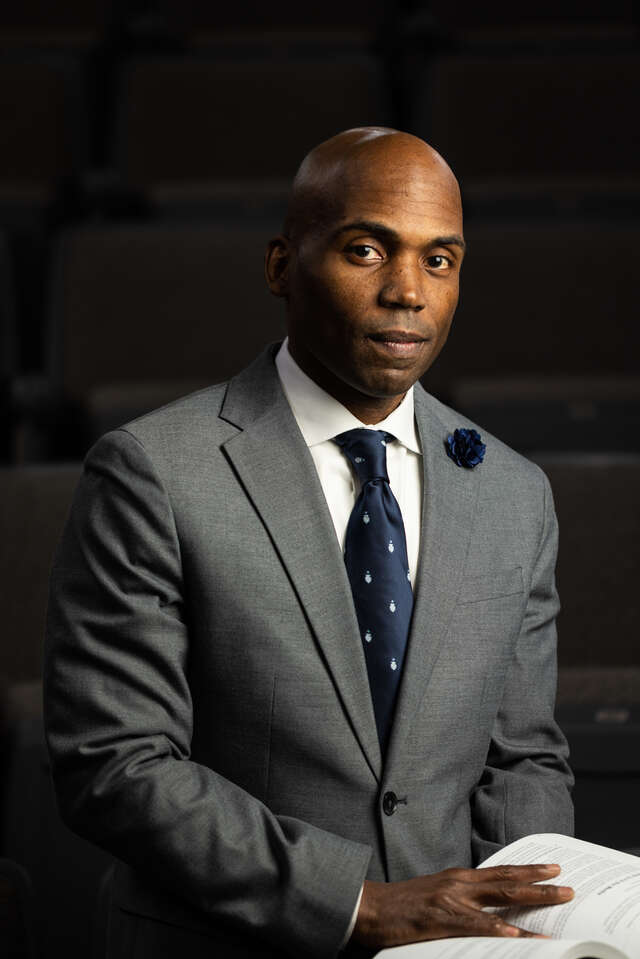
That day, Williams, a distinguished professor of history and RJI founding director, was addressing a meeting of the Minnesota Business Partnership, which comprises the top executives of the state’s largest employers. Young, as the only Black CEO in the audience, was deeply moved to hear another Black man speak candidly about his own experience, and by the way that Williams was able to illuminate little-known aspects of African American history — what Williams calls “the six degrees of segregation” — and tie the past to the present.
Young knew then he wanted Williams to do similar educational sessions for his entire company. The first series of presentations was for Young’s executive leadership team, then the board of directors, and then Delta Dental of Minnesota’s entire workforce of 310 people, including its technology and call center in Bemidji, Minnesota.
Ryan Companies CEO Brian MurrayWe can say, ‘We can't find talent,’ but we’ve been going to the wrong places!
Getting buy-in
“My presentation is a sprint through U.S. history from the perspective of African Americans,” said Williams, who has frequent appearances with national media. He looks for three things from organizations seeking to partner with the Racial Justice Initiative: First, buy-in from the top, because that’s what drives change. Second, a multiyear commitment to the work of racial justice — because there is no quick fix. And third, a willingness to connect the values of their mission statement to the work of racial justice.
His talks, always tailored to his audience’s industry and values, are what he calls “historical recovery” and are meant to fill in the gaps in most people’s understanding of Black history. They touch on topics from redlining and racial covenants to Jim Crow justice and the often-overlooked role of Black women in securing the right to vote.
Historical recovery acknowledges the wrongs that have been done, he said. The education sessions and the pre-session homework Williams assigns — often a combination of reading and viewing documentaries like TPT’s “Jim Crow of the North” — are designed to ground the listeners in a shared experience that can build a foundation for further learning and transformation.
Over the last three years, more than a dozen companies and nonprofits have participated in the Racial Justice Initiative’s educational sessions: Best Buy, Ryan Companies, SPS Commerce, U.S. Bank, as well as local grocery chain Kowalski’s Markets, to name a few.
In learning from the Racial Justice Initiative, these companies enhanced or expanded their own commitments to racial justice. Three of the companies, Ryan Companies, Kowalski’s and Delta Dental of Minnesota, share their journey.
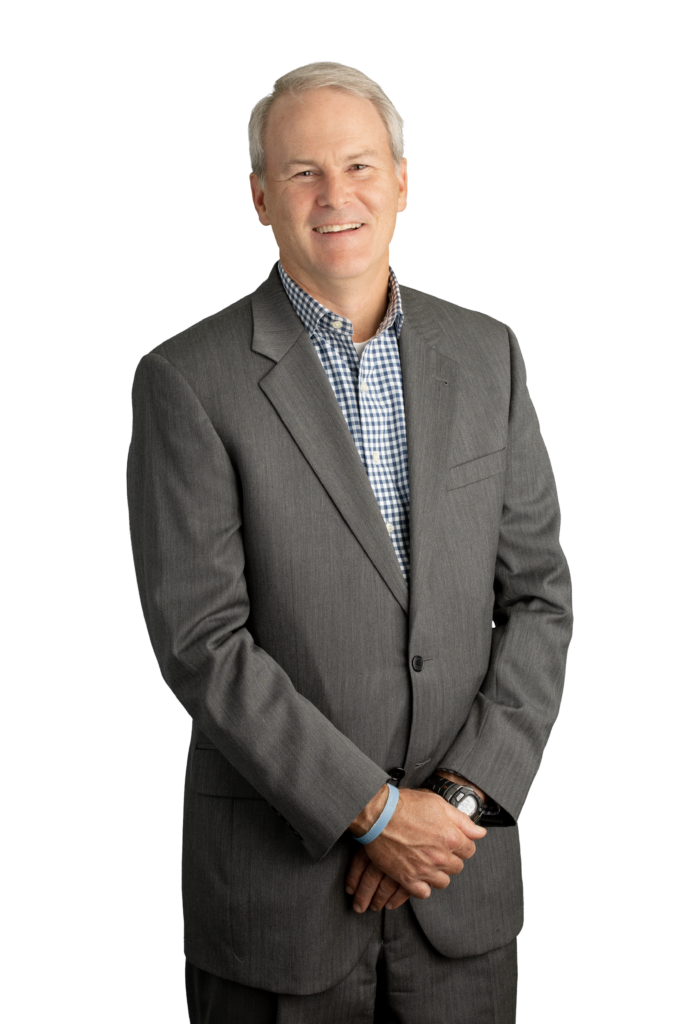
Ryan Companies: employee diversity
Ryan Companies CEO Brian Murray, the first non- family member to lead the construction management company, says he first began to better understand systemic racism and his own unconscious biases through his three children, Colombian adoptees. When they entered high school and started getting treated differently, such as being pulled over by police, their experiences opened his eyes. They might live in the same house, but they were not all living in the same world.
When he assumed the CEO role in 2018, Murray made diversifying the workforce one of his top priorities. After a September 2020 Racial Justice Initiative presentation where Williams spoke to 80 of Ryan’s senior leaders via WebEx, there was a common thread among leaders that accelerated the company’s progress on diversity, equity and inclusion (DEI), Murray said. They set a goal to increase the number of diverse employees to 20% by 2025.
With the assistance of a February 2021-established Black employee resource group, the company sent recruiters for the first time to historically Black colleges and universities (HBCUs).
Ryan has since hired several interns from Tuskegee Institute with “incredible engineering expertise,” Murray said. It also hired Atlanta-based Keisha Duck as its new chief human resources officer. Such changes increased the percentage of diverse employees among its 2,000 employees.
The company, which also worked to increase the racial diversity of its board, now requires a diverse slate of candidates for every job opening. At a time of historically low unemployment, that requirement can extend the time frame for hiring, Murray said. But it’s a way to try to disrupt unconscious bias — what Williams says is a biological preference to be around people who resemble ourselves.
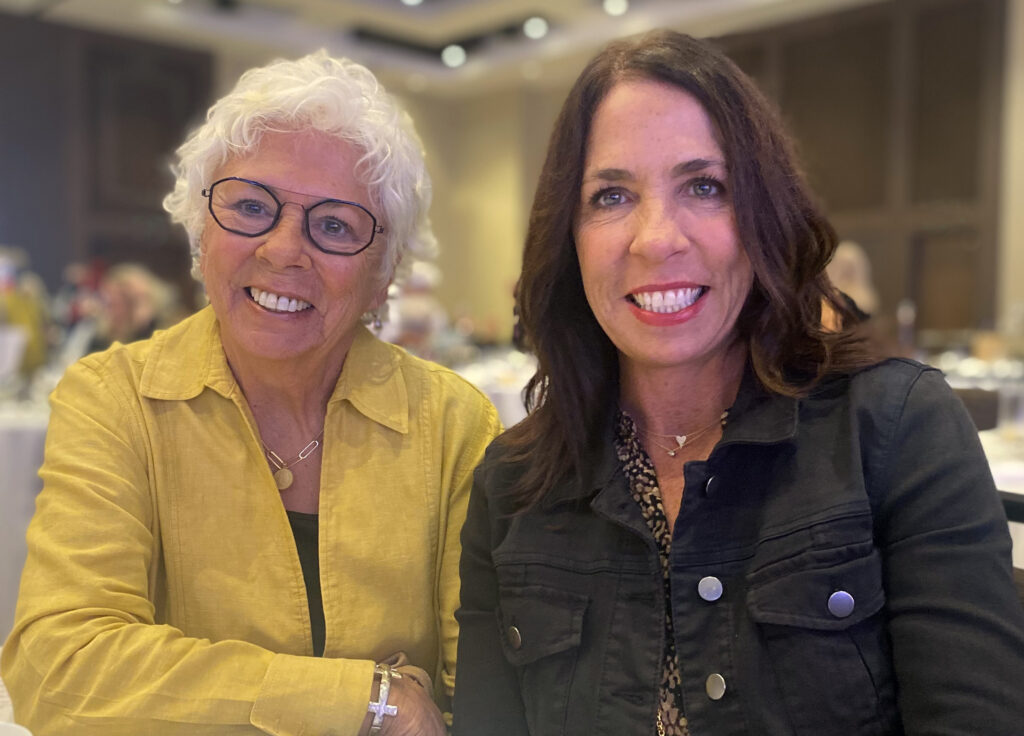
Kowalski’s: community impact
More than two decades ago, grocery retailer Kowalski’s Markets started on the journey to becoming a civic business for which a focus on organizing and governing for the common good are key. Its leaders — Mary Anne Kowalski, the company’s owner and co-founder, her daughter, CEO Kris Kowalski Christiansen ’88, and Mike Oase, the COO — saw the Racial Justice Initiative as an opportunity to build the company’s leaders’ capacity around issues of racial justice.
The Kowalski’s leadership team organized a series of education sessions with Williams. The first session, in January 2021, was with the company’s top 32 leaders, including 11 store managers; and then in two sessions over the next year and a half (interrupted by waves in the COVID-19 pandemic) they included all the department managers and assistant store managers.
“Just hearing the cold, hard truth from a Black man who lives and breathes it” was an eye-opening experience, said Kowalski Christiansen, who received her bachelor’s degree from St. Thomas.
Since those sessions started, the company, with a workforce of 1,800, has sought ways to deepen its engagement around racial justice. Always a champion of local food producers, the company partners with organizations like 4 Access Partners and the Northside Economic Opportunity Network (NEON) to support bringing new products by diverse entrepreneurs into its stores. Kowalski’s recently added several Black-owned products, including sold-by-the-bag Soul Grain Granola, gourmet cookie company Love You Cookie founded by St. Thomas alumnus Sahr Brima ’11, Lovejoy’s Bloody Mary Mix and the start-up streetwear brand Blind Havoc, whose goal is to “spread positivity through clothing.”
“We have been having a lot more interaction with people giving local entrepreneurs (an avenue) who perhaps don’t have the knowledge or the finances to get a business going, but have the idea and the drive to do it,” Kowalski Christiansen said.
Kowalski’s Markets has, from its beginnings at its flagship Grand Avenue store in St. Paul, been deeply involved in the communities it serves. Years ago, it also established Kowalski’s 4 Kids Foundation, which focuses on inner-city children because Mary Anne Kowalski grew up as an inner-city kid. Since becoming involved with RJI, Mary Anne and Kris joined the board of African American Child Wellness Institute, which provides mental health services to children who have experienced trauma and violence.
Delta Dental of Minnesota CEO Rod YoungWith learning comes increased awareness and accountability.
Delta Dental: changing within
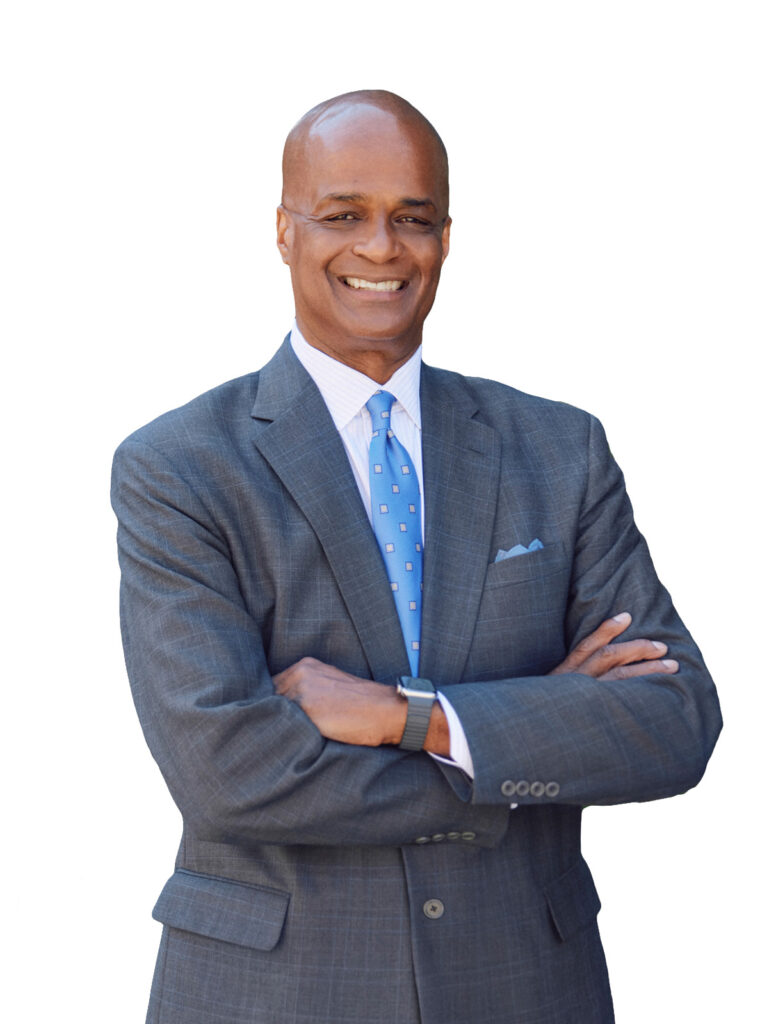
“We need to learn before we can act and try to understand before we can change,” Delta Dental’s Young said. “If we learn, we will do some things differently.” He said that includes asking questions that are inclusive, rather than exclusive, making sure the company’s hiring practices are equitable and working to make sure diverse individuals feel valued and welcome.
After Williams’ presentations, Delta Dental of Minnesota wanted to keep the momentum going, so leaders set a goal of having 100% of the workforce participate in incentivized learning activities about racial justice as part of the company’s strategic plan.
“With learning comes increased awareness and accountability,” Young said.
The learning could take any form, but team members had to share what they had learned. Young cited a team member in Bemidji who spoke with a grandparent about race in the 1960s civil rights era.
Retaining and attracting a diverse workforce is another key goal for Delta Dental. The company is conducting “stay” interviews with all its team members, with a focus on the 10% who are diverse, said Kathie Eiland-Madison, Delta Dental’s chief engagement and inclusion officer. Joining Delta Dental around the time it became involved with RJI, she has partnered with Young to implement changes and expand the company’s pipeline for diverse talent.
Delta Dental of Minnesota, through its foundation, has invested $24 million since 2009 to expand access to dental care for underserved populations. Building on that community outreach, the company is partnering with Mortenson Construction and the Restore-Rebuild-Reimagine Fund to help business owners on Lake Street get back on their feet after their businesses were damaged during the civil unrest of 2020. Delta Dental’s foundation contributed $5 million to this effort, Young said.
Young has become somewhat of an evangelist for the Racial Justice Initiative. He engaged Williams to make a presentation to Delta Dental’s national board of directors, which includes the other 39 Delta Dental CEOs around the country — some of whom have since engaged the Racial Justice Initiative to work with their own companies.
Young, as the only Black CEO of a large company in the Twin Cities, said he feels obligated to do all he — and Delta Dental — can do to bring about change.
When people ask him what they can do, Young tells them: “You have to learn first. You can’t take a step until you understand where we were and where we are today.” And to do that, he points them to Dr. Yohuru Williams and the Racial Justice Initiative.
